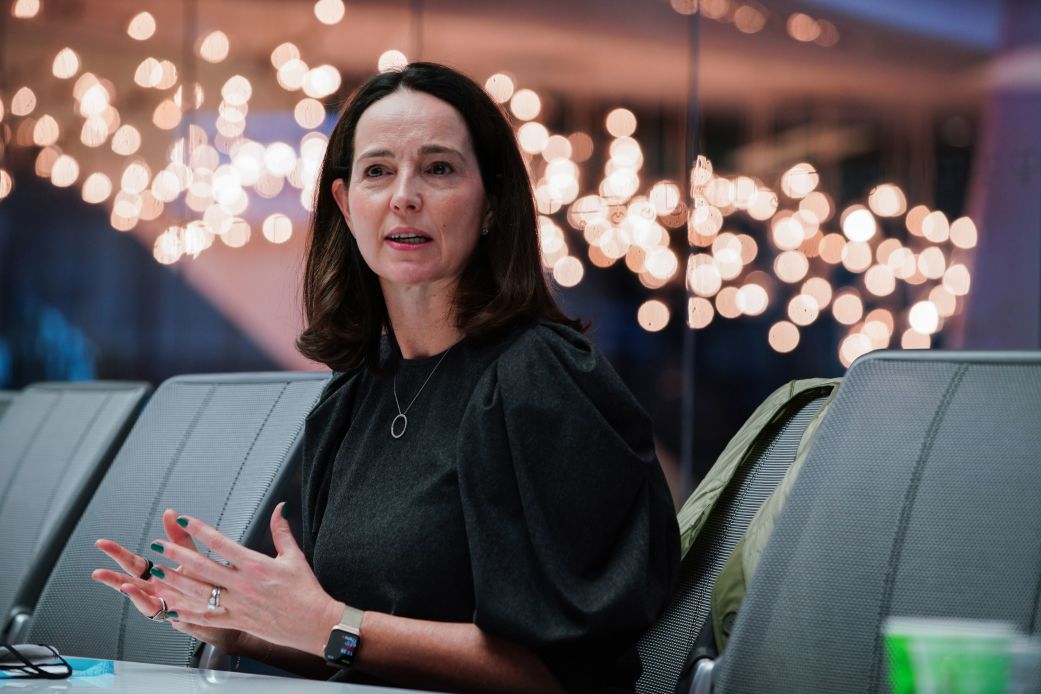OpenAI Executives Backtrack After Controversial $1.4 Trillion Government Backstop Remark
OpenAI entered crisis PR mode on Thursday after its CFO suggested the US government should guarantee its massive $1.4 trillion AI infrastructure investments. Both CFO Sarah Friar and CEO Sam Altman quickly clarified the company is not seeking taxpayer-backed loans, attempting to quell a growing controversy.
Key Takeaways
- OpenAI CFO Sarah Friar suggested US government “backstop” for $1.4 trillion AI infrastructure
- Comments sparked backlash over potential taxpayer liability for private company
- Both Friar and CEO Sam Altman clarified OpenAI doesn’t want government guarantees
- Company projects $20 billion revenue this year, growing to “hundreds of billions” by 2030
What Sparked the Controversy
During a Wall Street Journal event, OpenAI CFO Sarah Friar suggested the US government should “backstop” the company’s aggressive AI infrastructure investments, potentially lowering financing costs and increasing debt capacity. She described this as “the guarantee that allows the financing to happen.”
Following immediate backlash, Friar walked back her comments on LinkedIn, stating OpenAI was “not seeking a government backstop for our infrastructure commitments” but believed government should “play their part” in America’s AI growth.
Why the Comments Caused Backlash
The initial remarks drew sharp criticism for implying taxpayers could be liable if OpenAI couldn’t meet its $1.4 trillion infrastructure commitments. Critics noted the irony of a $500 billion private company seeking government support while taxpayers wouldn’t directly benefit from its success.
“It is absurd that OpenAI insiders think the U.S. government should furnish them with preferential borrowing rates while they get to grow the value of their privately held shares on the backs of American taxpayers,” said Jones Trading chief market strategist Mike O’Rourke.
The controversy highlighted broader concerns about how the not-yet-profitable company plans to finance its massive chip and data center commitments with partners like Nvidia, AMD, and Amazon.
Sam Altman’s Clarification
OpenAI CEO Sam Altman intervened on Thursday, revealing the company expects $20 billion in revenue this year and projects growth to “hundreds of billions” annually by 2030 through enterprise AI and consumer devices.
He firmly stated: “We do not have or want government guarantees for OpenAI datacenters. We believe that governments should not pick winners or losers, and that taxpayers should not bail out companies that make bad business decisions.”
Altman suggested the government could instead invest in its own data centers and guarantee loans for new US chip fabrication plants, aligning with White House national security priorities.
Political Context and Response
The controversy emerged amid the Trump administration’s focus on AI infrastructure as a national priority. President Trump has committed to reducing AI regulations and streamlining data center permits.
Trump’s AI Czar David Sacks explicitly stated on X: “There will be no federal bailout for AI. If one AI company fails, others will take its place.”
The episode highlights the delicate balance between and maintaining free market principles in the rapidly evolving AI sector.




